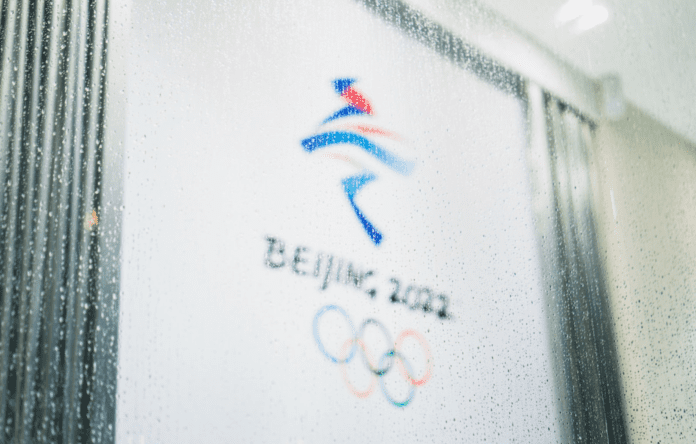The 2022 Winter Olympics have recently come to an end in the capital city of China – Beijing. With new world records broken and a fair share of memes swirling on the internet, this Winter Olympics has set the framework for a new world order. From curling to ice-skating, the world’s top athletes gather to compete against each other, representing their home country. But what most people miss from the frivolity of the Olympics is the fact that competition does not simply stop at athletics- it is ultimately a political showdown for countries to tout their soft powers. It is a rare feat in today’s current socio-political climate when countries can band together and “play nice” for a few weeks’ time, but the Olympics prove it is possible every two years. As our every day is filled with more whispers of World War III and the increasing diplomatic tensions between the US and China, the mere feat of assembling 205 teams from 193 countries in the world is incredible. The inherent nature of the games is political, under the guise of being the gold standard for athletics.
One of the most prominent displays of the political nature of the Olympics stems from the location in which they are hosted. Beijing hosted the summer games of 2008 and then the most recent winter games just a couple of weeks ago. The International Olympic Committee initiates elections for host cities decades prior to the event itself. The location of the games is a significant decision, with rounds of voting from each country’s own national Olympic committee. The Chinese have taken on the role two times now, being the first country to host both the summer and winter games. The pick for the winter games seems bizarre, as Beijing receives little snowfall and over 90% of their snow used was artificial, but nevertheless, China won the bid. Research shows that not only does hosting improve a country’s domestic self-view, but also its global image, and consequently their level of soft power. A poll taken in 2008 by the Pew Research Center showed that a whopping 93% of Chinese citizens believe that the Olympics will improve the country’s public image around the globe. As Chinese leaders play their roles in political theater, they find a captive international audience to show off their resounding power.
Although new research hasn’t been completed regarding the most recent games, it is a safe assumption that this sentiment would be echoed. China uses these games as a way to show off a gilded front that glistens from the outside but is simply sweeping its deep issues under the rug. Their “zero tolerance” COVID policy has gained praise from many, as the pandemic still wreaks havoc all over the map. The policy involves extensive testing, strict travel mandates, and austere quarantines. To ignorant viewers around the world, China looks like a thriving state, but after the closing ceremony, their issues will still fester at the surface. Uyghur Muslims continue to be persecuted and censorship reaches every corner of the country, yet they choose to be in the spotlight (however myopic it may be). China was so intent on putting forth this idyllic image that their opening ceremony torchbearer was from an Uyghur minority. This decision was clearly not random and was used as a symbolic cover-up. Many viewers pointed out the irony, and when the IOC was asked to comment, they replied that it complied with the standards of the games remaining apolitical.
The Olympics have always been surrounded by politics and drama, whether doping scandals or cultural snafus, but this year’s Olympics took the gold medal in controversy and has seemed to establish a new, over-politicized normal. The integrity of the games has left for many, revealing the truth of the matter; the games create an atmosphere unlike any other for countries to strengthen their power base in our increasingly multipolar world. The winners of the games are not the athletes, instead, they are the hegemonies that are able to exemplify the strength of their soft power in the few short weeks of the event. It is only a matter of time until we discover whether China’s public image truly has improved since their hosting responsibilities. But the politicization does not just come from the host country. It is also the stage for diplomats to showcase their own agenda. The United States made waves months before by announcing a diplomatic boycott of the games, then Britain, Canada, and Australia followed suit. As these Western countries banded together, Russia cozied up to China, painting a stark contrast between the two spheres of influence.
2024’s Parisian Olympics will hold the grandeur and beauty of every participating athlete. But these modern Olympics are bound to also include a propaganda campaign. What facade will France present- the shining star of the European Union amongst such a fragile world view? World leaders will be on parade in Paris, just as they were in Beijing. The International Olympics Committee, although with good intentions, is faced with an impossible feat- gathering countries to stay “apolitical” in a polarized world. China, instead of hiding from the world amongst accusations of genocide under an authoritarian regime, has decided to showcase its might. Russia invades Ukraine only mere days after the closing ceremony, an act that even the most naive would call related. The idea that the Olympics are a moment of unity and kumbaya is beautiful, yet laughable. As viewers watch the posture of ice-skaters, the real focus should be on the posturing of countries.



